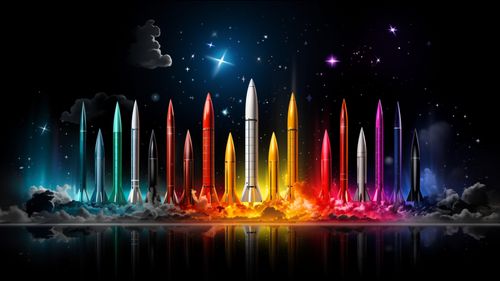The Cult Classic 'Gravity's Rainbow' Explained: A Postmodern Epic
Feb 07, 2024 · 2 mins read
0
Share

Ever wondered what's all the fuss about "Gravity's Rainbow"? It's because Thomas Pynchon's postmodern epic is as baffling as it is brilliant. It's a literary rollercoaster ride, where the usual rules of storytelling don't apply.
Save
Share
Set in WWII, the novel follows Tyrone Slothrop, a man whose sexual encounters predict rocket strikes. It's a wild premise, but Pynchon uses it to explore themes of fate, paranoia, and technology.
Save
Share
Pynchon's writing style is a whirlwind of references, from high culture to pop culture. It's like he's DJing a party where Shakespeare, Bugs Bunny, and rocket science are all on the guest list.
Save
Share
The novel's title refers to the parabolic trajectory of a rocket, but it's also a metaphor for the forces that shape our lives. Are we free, or are we just following the path gravity has set for us?
Save
Share
"Gravity's Rainbow" is notorious for its complexity. It's like a literary labyrinth, full of dead ends and hidden passages. But those who brave it are rewarded with a unique reading experience.
Save
Share
Pynchon's characters are as varied as they are vivid. From a Pavlovian psychologist to a sentient lightbulb, each adds a piece to the puzzle. It's a circus of the strange and surreal.
Save
Share
The novel is divided into four parts, each named after a stage of a rocket's flight. It's a structure that mirrors the book's themes, showing how our lives are propelled by forces beyond our control.
Save
Share
"Gravity's Rainbow" is a critique of the military-industrial complex. Pynchon shows us a world where war and technology are intertwined, a warning that feels eerily relevant today.
Save
Share
Despite its darkness, the novel is also wildly funny. Pynchon's humor is anarchic and absurd, a reminder that even in the face of the incomprehensible, we can still laugh.
Save
Share
So next time you're looking for a challenge, pick up "Gravity's Rainbow". It's a wild ride that will leave you dizzy, but also dazzled. It's a reminder that literature, like life, is a journey, not a destination.
Save
Share
0